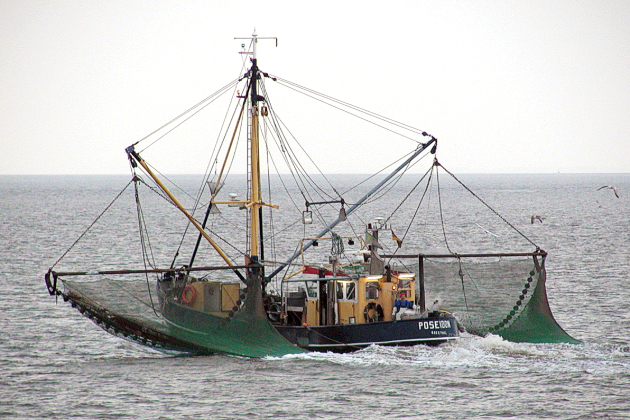5 ways to tackle Australia's backlog of asylum cases
The Conversation
24 Apr 2025, 05:57 GMT+10

People who apply for asylum in Australia face significant delays in having their claims processed. These delays undermine the integrity of the asylum system, erode public confidence and cause significant distress to people seeking asylum.
There are, at the time of writing, 28,691 applications for a protection visa awaiting a decision at the Department of Home Affairs. At least 43,308 applications await review at the Administrative Review Tribunal.
For people seeking asylum who have their initial applications refused and seek review in the Administrative Review Tribunal and in the Federal Circuit and Family Court, the process can often take more than ten years.
Whoever wins the upcoming election inherits the daunting task of addressing this issue.
Our research evaluated data on Australia's previous attempts to increase efficiency of asylum processing. We also examined international best practice for designing fair and fast procedures, including lessons from recent successful asylum reforms in Switzerland.
Here are five ways to make Australia's asylum process more efficient.
In most countries with asylum systems, processing is neither fair nor fast.
When trying to increase efficiency, many governments have limited the ability of a person seeking asylum to fairly put forward their case.
Australia, the United States, and many countries across Europe have introduced accelerated or fast-track procedures that drop essential safeguards including:
But these efforts don't just undermine fairness. They also contribute to slower processing.
Such measures tend to lead to more appeals, and more cases being overturned by courts and tribunals. This contributes to longer delays.
Our research into Australia's now-abolished fast-track procedures demonstrates this. This policy was introduced by the Coalition government in 2014, with the aim of speeding up processing and reducing the backlog of asylum applications.
It included the creation of a new streamlined review process before the Immigration Assessment Authority. Applicants were generally not interviewed or allowed to put forward new information.
The resulting system was not only unfair; it was also excruciatingly slow.
Four in five cases were appealed to the court. About 37% of these were overturned. The delays created by increased litigation clearly counteracted any time saved.
One of the best ways to improve the efficiency of asylum processing is to ensure applicants can present their cases effectively from the outset.
Research shows legal assistance increases efficiency.
Lawyers can help assist people to prepare and present their case properly, and ensure that they get a fair hearing (reducing the chance of a lengthy appeal).
Promisingly, in 2023 the federal government announced A$48 million in funding for legal services for people seeking asylum.
It's crucial this funding is maintained, and is sufficient to meet demand.
Once a person lodges their claim for asylum, it's first assessed by the Department of Home Affairs. If the application is denied, the applicant can seek review at the Administrative Review Tribunal, which reassesses the merits of the application.
If the tribunal rejects the claim, the court can conduct a limited review focusing only on whether the decision was lawfully made.
A fast process is only possible if we have enough of all these decision-makers across the system.
This requires investment in training and hiring suitably qualified decision-makers who are equipped to handle the volume and complexity of asylum claims.
This is underway. The federal government has invested $58 million in October 2023 towards hiring additional Administrative Review Tribunal members and Federal Circuit and Family Court judges for asylum cases. It's also hiring more staff at the Department of Home Affairs.
Australia's next government should consider taking a data-driven approach to calculate the decision-making capacity required for existing and future caseload.
Not all asylum cases are equally complex; some can be resolved relatively quickly.
Australia needs a robust and transparent triaging system to identify and prioritise simpler cases for faster processing.
This would significantly improve overall efficiency and allow decision-makers to focus on more complex cases.
The Department of Home Affairs' current approach to triaging is a "last in, first out" system that prioritises new asylum applications for rapid processing.
However, this leads to substantial unfairness for applicants who lodged their claims earlier, who may face long processing delays.
The department needs an approach to streaming based on case complexity, to ensure all cases are finalised as quickly as possible.
The various bodies involved in asylum processing - including the Administrative Review Tribunal, the Federal Circuit and Family Court and the Department of Home Affairs - need to coordinate to improve efficiency and cut delays.
Any government reforms aimed at increasing the efficiency of asylum procedures must be system-wide.
By taking a holistic view, we can ensure that increased efficiency at one stage does not inadvertently create bottlenecks or inefficiencies in another.
Overall, Australia needs a fundamental shift that recognises fairness contributes to, rather than detracts from efficiency.
That shift is essential for developing a fair and fast asylum process that will serve the best interests of applicants, the government and the Australian public.
 Share
Share
 Tweet
Tweet
 Share
Share
 Flip
Flip
 Email
Email
Watch latest videos
Subscribe and Follow
Get a daily dose of Australian Herald news through our daily email, its complimentary and keeps you fully up to date with world and business news as well.
News RELEASES
Publish news of your business, community or sports group, personnel appointments, major event and more by submitting a news release to Australian Herald.
More InformationInternational
SectionFilipino devotees reenact crucifixion on Good Friday
CUTID, Philippines: On April 18, Good Friday, Christian believers in the Philippines were nailed to crosses in a reenactment of Jesus...
US to restrict visas for 250 Nicaraguan officials
WASHINGTON, D.C.: The United States will limit visas for more than 250 officials from Nicaragua, U.S. Secretary of State Marco Rubio...
Measles outbreak confirmed in Michigan's Montcalm County
LANSING, Michigan: The Health Department in Michigan confirmed a measles outbreak in Montcalm County this week, marking the first such...
US Supreme Court to review trump birthright citizenship move
WASHINGTON, D.C. The U.S. Supreme Court will hear arguments on May 15 about President Donald Trump's attempt to restrict automatic...
Trump signs order to ease seafood industry rules
WASHINGTON, D.C.: President Donald Trump has signed an executive order directing the U.S. Commerce Department to ease regulations on...
World mourns loss of Pope Francis, dead at 88
THE VATICAN - The world is in shock and mourning on Easter Monday as it woke to the news that Pope Francis had died. Having recently...
Sydney
Section52 Not Out: Revisiting 'Master Blaster' Sachin Tendulkar's fabled 'Desert Strom' heroics
New Delhi [India], April 24 (ANI): Sachin Tendulkar, a wizard with the bat and an artist of stroke play, turned 52 on Thursday. During...
5 ways to tackle Australia's backlog of asylum cases
People who apply for asylum in Australia face significant delays in having their claims processed. These delays undermine the integrity...
This may be as good as it gets: NZ and Australia face a complicated puzzle when it comes to supermarket prices
With ongoing cost of living pressures, the Australian and New Zealand supermarket sectors are attracting renewed political attention...
Why AUKUS remains the right strategy for the future defence of Australia
Australian strategic thinking has long struggled to move beyond a narrow view of defence that focuses solely on protecting our shores....
Provocative, progressive and fearless: why Beatrice Faust's views still resonate in Australia
Beatrice Faust is best remembered as the founder, early in 1972, of the Women's Electoral Lobby (WEL). Women's Liberation was already...
More than 40 years on, the NSW Aboriginal Land Rights Act speaks to an enduring desire for a strong future
Land Back, a collection of essays edited by Gomeroi professor Heidi Norman, marks over 40 years of the Aboriginal Land Rights Act 1983,...












